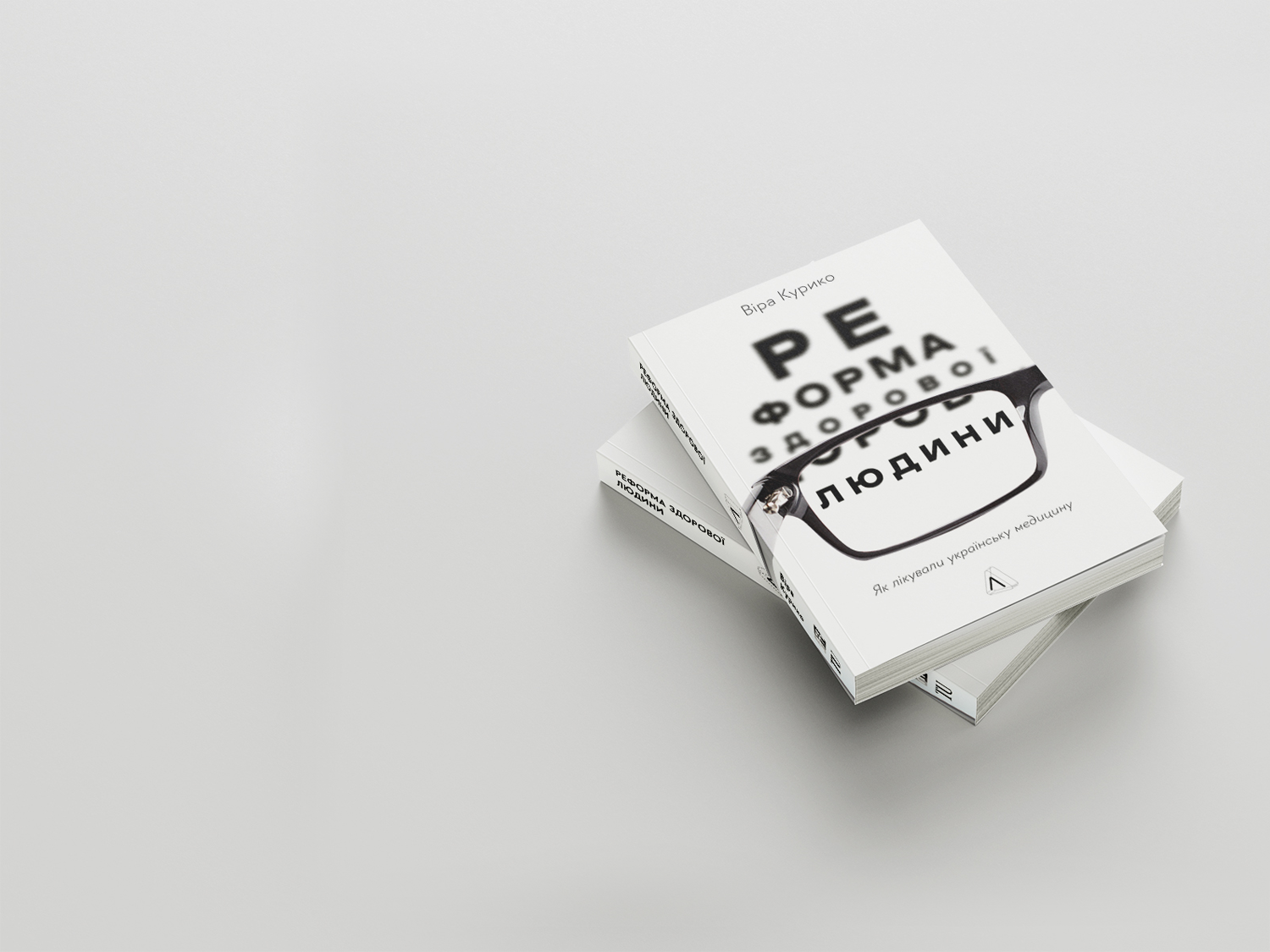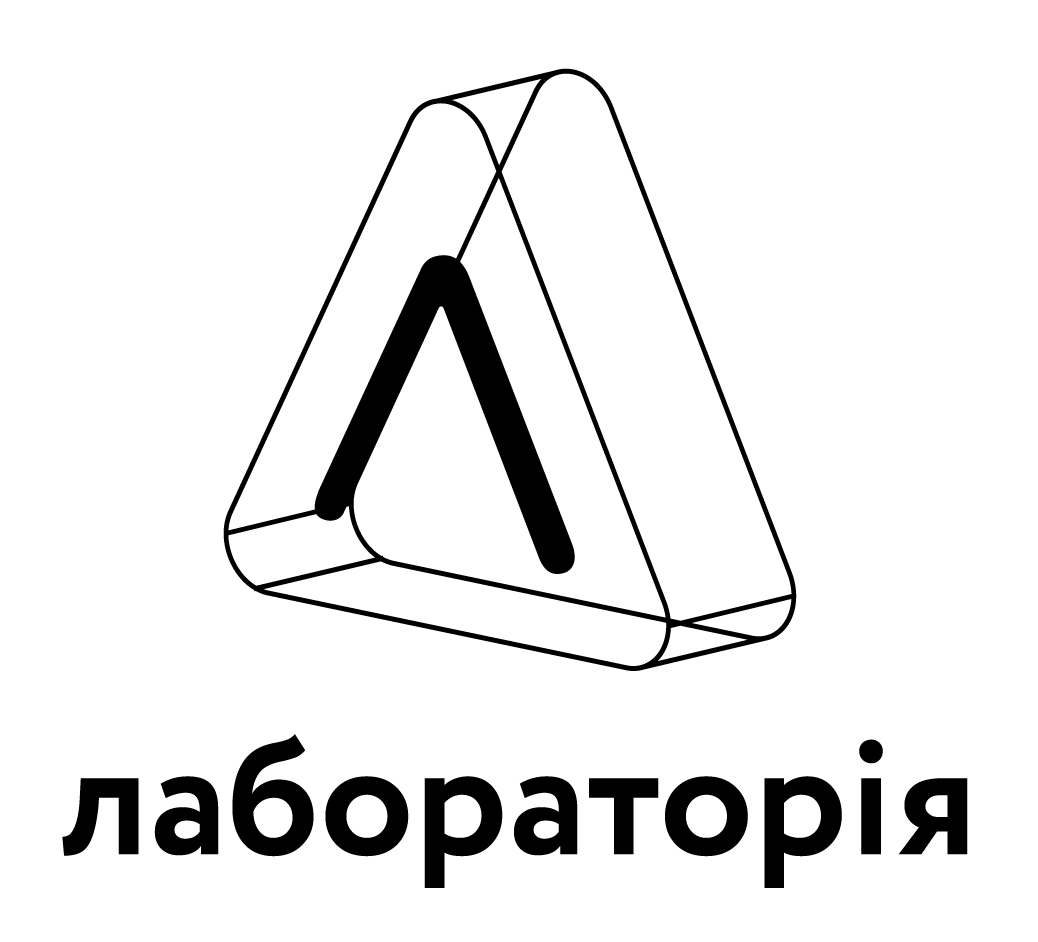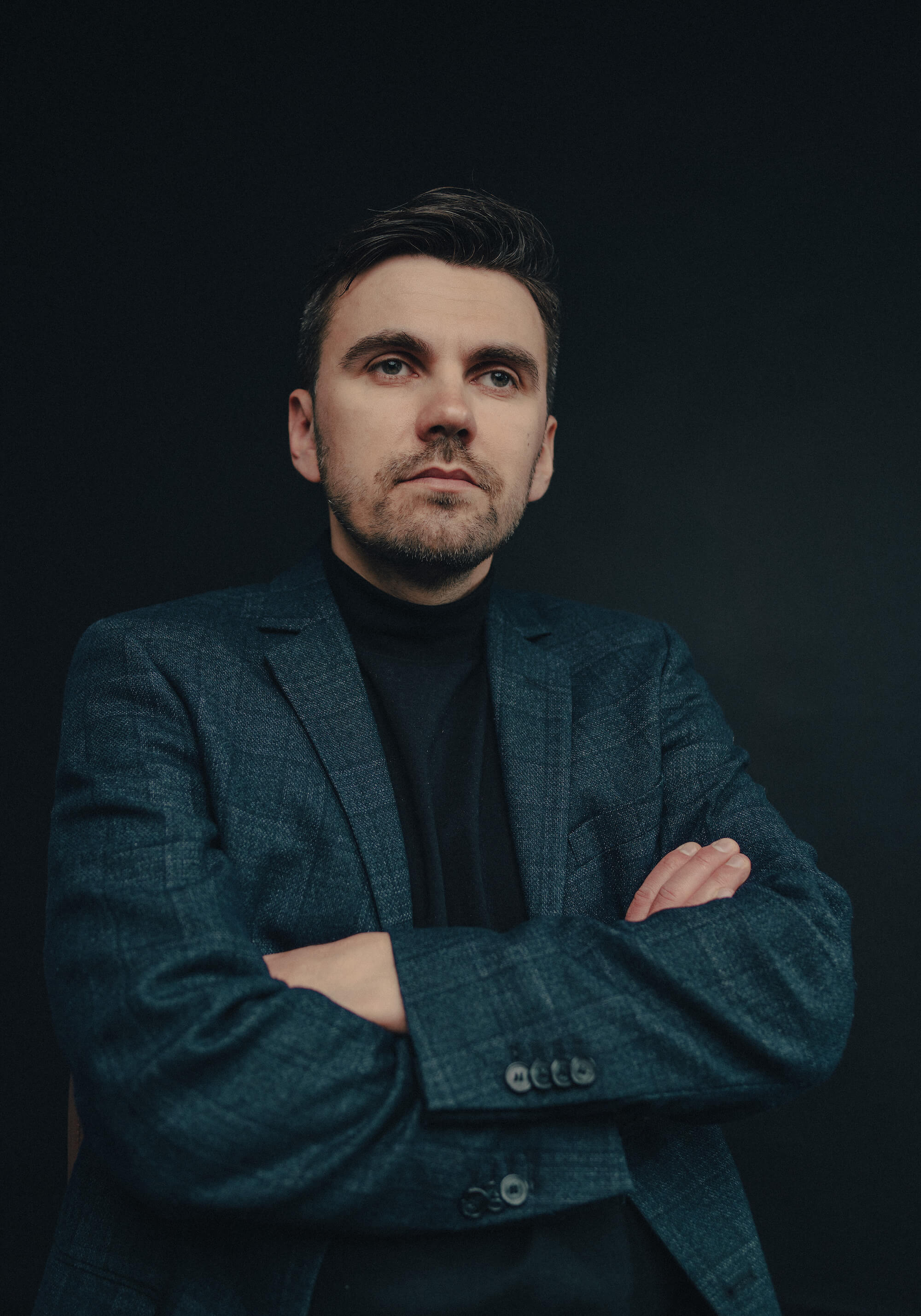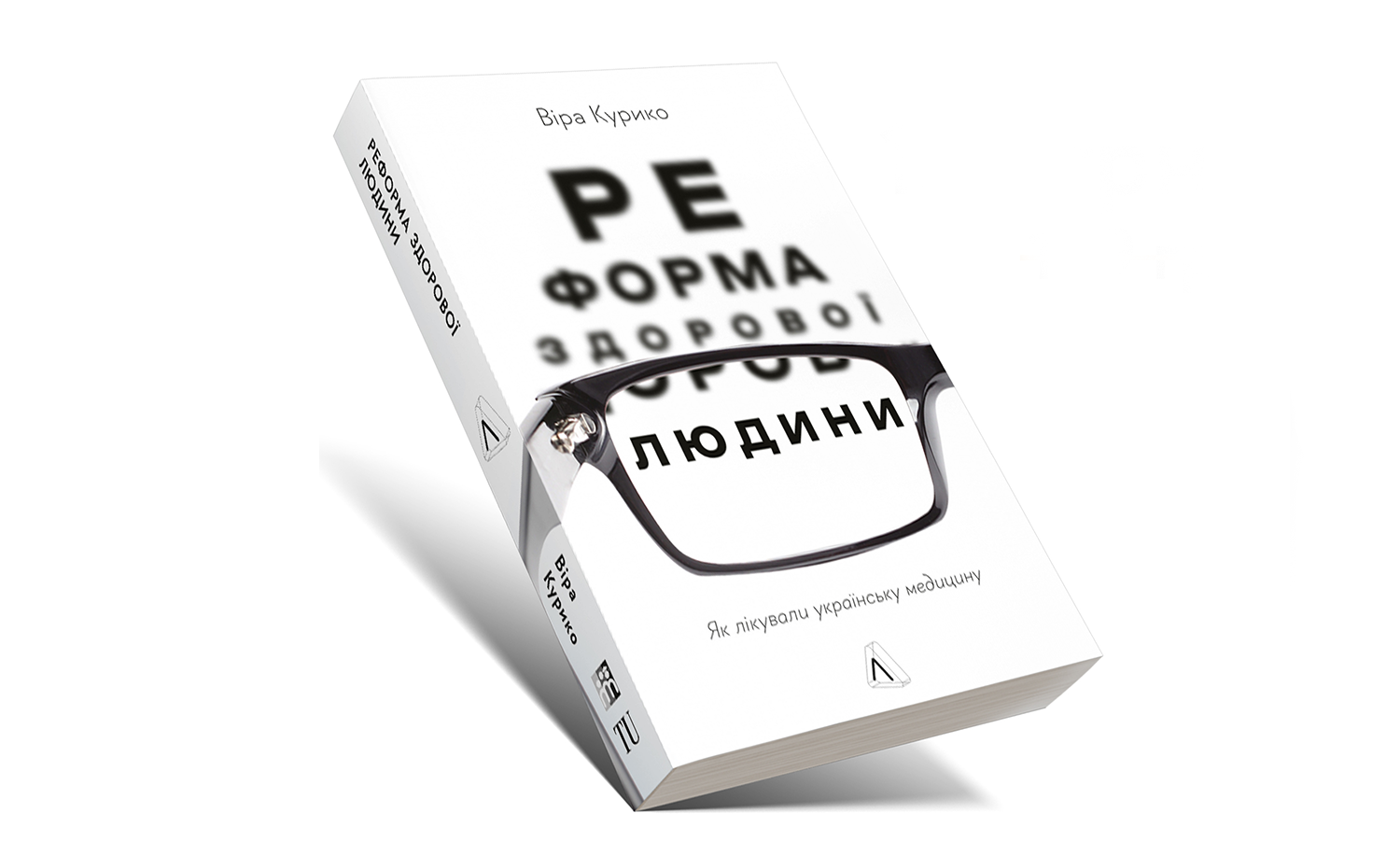
Manage Before the Concrete Pours

Medical reform has been one of the most successful and efficient reforms in independent Ukraine. Healthy Person’s Reform, a book by the Ukrainian reporter Vira Kuryko, tells the story of this reform from the mouths of its participants. This is the story of concepts, campaigns, and battles for values; examination by committees and offices; and search for support against the backdrop of daily defence by Acting Minister Uliana Suprun, who became the ambassador of the reform, as well as personal stories of the people who took on the burden of the practically impossible mission: to change the system. Those people were often outside the public system, and civil service was hardly their dream. However, they managed to initiate permanent changes in Ukrainian medicine.
The project was implemented in partnership with the Ukrainian-Swiss Project “Medical Education Development”. We are publishing an extract from this chronicle of the Ukrainian medical reform; the book itself will soon be published by The Laboratoria.

Story by healthcare management expert Pavlo Kovtoniuk. In 2014, Kovtoniuk participated in development of the medical system financing reform. He was a deputy to Uliana Suprun, the Acting Minister of Health, and was responsible for implementation of the reform. He left the Ministry of Health together with Uliana Suprun in 2019 when his term ended.
I
Pavlo Kovtoniuk first entered the Ministry of Health for only forty minutes. He had an interview with the new post-Maidan Minister, Oleh Musii.
It was 2014. Pavlo, a graduate from the first Ukrainian public health management program at Kyiv-Mohyla Academy, taught in the Master’s School of Public Health at the same university and edited the magazine PRO Healthcare Management. Following the Revolution of Dignity, Pavlo sought to find his new self and his place in the new reality just as others did—both as a professional and as a citizen.
The Ministry, located in a grey building on Hrushevskoho Street, made a depressing impression on him. After talking to the Minister, Pavlo went outside, breathed in some fresh air and thought that he would never wish to come back there again. “The atmosphere was suicidal.” It was approximately one year before the start of fundamental changes in the healthcare system.
II
The Constitution of Ukraine guarantees free medical aid. However, those who had to deal with hospitals knew that this was not true in reality. It was common for patients to put money into self-made boxes with the sticker “charitable contributions” or inside the medical record to show gratitude to the doctor or to leave the doctor’s office crumpling a paper with the list of all the things to be purchased.
Ukraine inherited its healthcare system from Soviet times. In that system, the state financed beds in hospitals without due consideration of how many patients there actually were and what aid they were granted. First, the money was directed into the regional health departments, which then distributed it to hospitals based on obscure processes.
The hospitals had to maintain large areas and, regardless of their performance, received equally little money, which could generally cover only utilities and small salaries. Minimal funding was left for treatment, equipment, or even medical gloves. Moreover, the money that had not been used by the end of the year simply because there was not enough time had to be returned to the budget.
The medical reform that commenced in 2017 changed the rules dramatically. Instead of paying for beds, the state started to pay the hospitals “per patient—per service—at the unified tariff.” The patient was free to choose a family doctor based on quality and preference rather than registration address. A family doctor became the patient’s point of entry into the medical system, and the doctor’s services were paid for based on the number of his or her patients. The payment mechanisms were intended to be improved, and payment for the quality of the services would be added later.
The government was honest to admit for the first time that it was incapable of financing all treatment. Instead, it made a clear list of the most important services that it would pay for in full.
The new system gave the hospitals more money that could be administered with a focus on the patients’ needs. It also enabled increasing salaries, purchasing new equipment, or doing renovations.
The reform, which had started at the primary level, moved on to specialized aid in 2020 despite long-term opposition by the existing system. For this reason, the crusty old system had to be infiltrated by new people who believed it could be brought back to life.
III
Despite the common opinion that the countdown to the medical reform should start with the appearance of Uliana Suprun in the Ministry, according to Pavlo Kovtoniuk, it all started earlier.
Civil activity was enhanced by the anticipation of changes after the Revolution of Dignity. Public organizations and platforms—such as the Reanimation Package of Reforms Coalition (RPR Coalition) or New Country Public Platform— that united people from different areas who were ready not only to push the government toward reforms but also to participate in them were established at Maidan.
The medical group had themed meetings in the RPR Coalition. Thirty-year-old Pavlo Kovtoniuk, the editor of the magazine for healthcare managers and the professor at Kyiv-Mohyla Academy, only stayed at the first meeting for five minutes. Many different people from activists to deputies, chaotic conversations—it seemed to Pavlo that it was pointless. However, Sashko Yabchanka, a manager of the medical group at the RPR Coalition, studied at Kyiv-Mohyla Academy, so he caught Pavlo in the university halls and pulled him back into the meetings.
The charitable organization “Patients of Ukraine,” led by Dmytro Sherembei and Olha Stefanyshyna, worked actively in healthcare at the time. In the beginning, the organization did not have tight contacts with the medical group of the RPR Coalition, but, as Pavlo recalls, the Ministry of Health presented the medical reform concept to the public in May 2014. The activists were united then.
“Oleh Musii, the first post-Maidan Minister, turned out to be a wrong person for this position,” Pavlo recalls. “Many people were disappointed with his yield to the system. Moreover, he got doubtful deputies who used to imitate reforms in the times of Yanukovych.”
What would medicine be like if that concept had been implemented? Pavlo says that there would have been no changes.
“The purpose of the existence of the ‘solid executive managers’ class was to maintain the status quo. They perceive the demand for changes as the demand for imitation. They are imitation experts. The Ministry’s concept had good words, references to the WHO reports which, to their mind, would appeal to the international partners. In fact, it described the same post-Soviet system from another perspective. The Ministry proposed the concrete casting plan.”
However, in Pavlo’s opinion, the Ministry’s concept was useful: it mobilized the people who could offer something else. “Thus, the consolidation of the public sector ‘by previous concert’ started the work.”
It started with public consultations on the concept. Minister Musii was invited to the meeting. “Say, you are a post-Maidan Minister, aren’t you?! So come and talk to the public,” Pavlo laughs and recalls.
The activists were aware that they were not talking about “adjustment of the concept”—they needed new ideas. Olha Stefanyshyna and Dmytro Sherembei, together with the patients, contacted the donors: the World Bank and International Renaissance Foundation. They suggested an idea: to establish a strategic advisory expert group at the Ministry of Health that would develop the reformation strategy. Such groups, supported by Renaissance, were supposed to work in different sectors; the Foundation supported them in the other Ministries.
Oleh Musii did his best to protect the Ministry’s concept at the meeting with the activists, but the experts present persistently criticized the “concrete casting.” They also suggested that the reformation strategy should be developed by independent experts. Pavlo recalls that the irritated Musii had no way out. “He became the Minister right after the revolution, so he could not oppose the post-Maidan public. He could not oppose the international donors either; the World Bank and the World Health Organization supported the idea, and Renaissance agreed to provide the funding.”
This is how the history of the medical reform began. The window of opportunity that appeared after Maidan was evident but fragile. They had to manage before it closed.
IV
“It was a time when you could push the door open to any authority. People couldn’t be stopped,” recalls Pavlo Kovtoniuk. According to him, Dmytro Sherembei and Olha Stefanyshyna went to the Ministry almost every day and reminded Minister Oleh Musii of the expert group and the new concept. The donors had given the green light.
The Ministry reluctantly established a strategic advisory group on reformation of the healthcare system in Ukraine known as HealthSAG. The activists and patients controlled the process by establishing the secretariat in charge of the organizational work. Pavlo Kovtoniuk joined the secretariat. He remembers standing next to Kostiantyn Nadutyi, the Head of the Medical Aid Reform Directorate at the Ministry of Health, until Nadutyi printed the order for the group, and Dmytro Sherembei did not leave the Minister’s side until the order was signed.
The activists and the “Patients of Ukraine” insisted: experts had to be chosen by public competition only, and they could be from different countries. More than a hundred CVs were received from Britain, the USA, Georgia, and Croatia. In the end, HealthSAG was composed of twelve experts, including five from outside Ukraine. The group worked from 2014 until 2015.
“The MoH executives treated the group and the secretariat like the child they didn’t love,” Pavlo recalls. “Yet, there was nothing they could do; money was given by the international donors, the organization belonged to the activists, and the promotion was arranged by the NGOs. They had to tolerate that.”
The reformation strategy developed by HealthSAG experts was the first victory. It was not perfect, but still, it was something to start with, as Pavlo recalls. It suggested autonomy of hospitals, payment for services rather than beds, free choice of a doctor and a hospital, and a “guaranteed service package” paid for by the government, and the concept of an agency that would buy patient services from hospitals. It was a foundation for the future reform.
The work of HealthSAG coincided with changes in the government. The first government chaired by Yatseniuk resigned at the end of 2014. Oleh Musii did as well. “The hard period of instability started in the Ministry, but HealthSAG kept working,” Pavlo recalls.
The second government chaired by Yatseniuk was established in December 2014. It was wonderful news for the activists. Sandro Kvitashvili, the Georgian expert from HealthSAG, was invited to lead the Ministry of Health. “A miracle! We were incredibly lucky. We were jumping with joy; Sandro was one of the coolest experts. We had a charming and smart Minister, and the Strategy was ready. ‘Wow,’ we thought, ‘we are definitely going to succeed!’”
But they were wrong.
V
Pavlo was appointed a medical reform project manager at the newly established National Reform Council, the consulting and advisory body to the President. According to the structure of the Project Office, each member was to be connected to the specialized Deputy Minister as an adviser. Pavlo was an adviser to Ihor Perehinets, the deputy to Sandro Kvitashvili, and continued to insist on the importance of the financing reform.
Pavlo says, “In 2015 and 2016, when Kvitashvili was the Minister, the “Patients of Ukraine” facilitated adoption of the procurement law. Procurements were entrusted to international organizations. Another important law addressed the autonomy of hospitals.
However, Sandro Kvitashvili did not become a reformer for Ukraine. He gradually ceased to be active. He did not even approve the strategy for the reform, on which he had been working himself, as the official document. The well-designed text remained on the Ministry’s website. While the matters of autonomy and procurement were moving forward, the financing reform was slow.
In the Ministry, Ihor Perehinets was responsible for practically everything. Ihor was fully in charge of medical procurement, very difficult work, which took up all his time. Nevertheless, he provided all the possible support for the financing reform to Kotvoniuk. They gathered the working group at the Ministry and started to transform the Reformation Strategy into the Concept, i.e. the official document.
Ihor recalls that period as follows:
“Pavlo was fully entrusted by the Ministry to gather both the group and ideas. We started developing and testing the first steps to follow development of the Strategy.
I had worked for the WHO before the Ministry. In autumn 2015, I sent the Financing Reform Concept to Melitta Yakab, the economic expert from the WHO office in Barcelona, and asked her to have a look and comment on it.
Melitta gave her feedback. She found the reform incomplete and, therefore, unsafe. She had many comments and wanted to discuss them.
‘Listen, visit Melitta in Barcelona and finish the Concept,’ I said to Pavlo. It was November 2015. I could not go with him because, at the time, the Ministry was finishing its first procurement contracts.
Pavlo put the beautifully designed papers into the folder and went to Spain to finish the financing part together with the WHO experts.
There were also seminars in Washington, in the World Bank. While we were working, we realized what mistakes could be avoided and how, without any fragmentation of the payment mechanisms, and the division of social groups into those for whom all the services are 100% financed from the budget and those who have to pay additionally.”
The amendments were gradually made. The speed at which the work would start after Uliana Suprun had been appointed was connected with the fact that the Concept was almost complete then, as Pavlo notes.
VI
Then, the turbulent times started in the Ministry. The government was changed again in spring 2016. Volodymyr Hroisman became the Prime Minister. All the Ministers had been appointed, but the office of the Minister of Health remained vacant. Sandro Kvitashvili resigned voluntarily, just like he wanted. He submitted his first resignation request in July 2015.
“The chaos started in the Ministry. While they were looking for the Minister, the Acting Ministers were mostly people interested in kickbacks rather than reforms. Perehinets wanted to leave the Ministry,” Pavlo recalls.
However, before he left, Ihor had tried to promote the idea of the medical reform with the new government. He managed to meet Volodymyr Hroisman as he was being shown the presentations as the future Prime Minister. Ihor tried to present the medical reform. However, the future Prime Minister was irritated with the idea of establishment of the financial Medical Service Procurement Agency, which was the first name of the National Health Service of Ukraine. This first version was about finance rather than patient care. Ihor Perehinets says, “Hroisman was even more irritated with my earlier attempt to consolidate the medical subvention at the regional level without direct subventions to cities. He was opposed to the concept of centralized service procurement because he believed in total decentralization, including the healthcare resources. However, that episode helped me understand how the politicians ‘understood’ the reform and how it had to be positioned.”
Ihor Perehinets tried once more to present the reform to the Prime Minister. He was supposed to do that together with the adviser experts who could directly explain specific elements in detail. Pavlo Kovtoniuk, who was already planning to leave the Ministry because he had been invited to become a WHO adviser, talked about financing. Ihor Perehinets believes that the meeting on 3 June 2016 played a key role for the future changes.
Pavlo considered the presentation of the reform and realized he did not know how to present the financing reform adequately. He cautiously contacted Dmytro Hurin, whom he had met at the RPR Coalition. Dmytro was a PR expert and knew how to “sell” things. At the time, Pavlo considered him to be a “seller of air,” but he had nothing to lose.
Dmytro deleted half of the presentation. The rest was simplified. Pavlo kept thinking that it was “air,” and he took that “air” to the Prime Minister. He learnt the text accompanying the presentation like a poem: money will follow the patient, everything will be done by referral, first aid requires no referral.
“Dmytro prepared the presentation Hroisman would hear. It was an interesting lesson on how to present the materials and political aspects inseparable from the technical ones. I had to admit that Dmytro was a communication genius.”
“The new presentation was better, had more details,” Ihor Perehinets recalls. “The Prime Minister was more willing to hear us, in particular, owing to my meetings with him. The presentation was about the ‘state insurer’ so that he would not be irritated by the financial agency anymore.”
While the anxious Pavlo was explaining how medicine could change to Hroisman, the presentation was inconspicuously observed by a woman with long fair hair. Pavlo did not even notice her at first. Even if he had noticed her and had heard her last name, nothing would have changed. Her American accent would also mean nothing to him.
VII
Uliana Suprun, a volunteer and a healthcare professional, was invited by the Prime Minister that day to sit, to listen, and to comment on what she would hear. Volodymyr Hroisman considered her a candidate for the office of the Minister of Health. Pavlo would hear that story from Uliana later.
After the presentation, when everyone had left, Hroisman asked her, “What do you think?”
“She said it was perfect. If she was the Minister, she would do the same,” Pavlo says.
Then, Uliana said that she would need the team, political support, and financing. “If you promise me that, the reform can be implemented,” the future Minister of Health said in the interviews after she had resigned. Ihor Perehinets, who already knew Uliana Suprun, told her that the team definitely needed Pavlo Kovtoniuk and some other people who had been working since 2014.
Several days later, Pavlo saw an unknown number on his mobile phone screen.
“Good afternoon, this is Uliana Suprun. Can we meet?”
Pavlo came to the office of her non-governmental organization “Patriot Defence.” There were strangers in military uniform, flags, and slogans of “Freedom or Death” all around. Pavlo and Uliana sat at a table. Uliana said that she had seen the presentation. She was invited to the Ministry. She wanted to do it the way he had presented.
“Join me, and let’s do it. What do you think?”
Pavlo took some time to think and agreed. Why? “I trusted Uliana intuitively although I didn’t know her. My brain had no trust, but my heart trusted her a little.”
Yet, Pavlo had three conditions. “The first one was that I would deal only with one thing: financing reform. The second one was that under no circumstances would I work on procurement, even if the sky was falling. The third one was that I would only work with the people selected by Uliana rather than those appointed by the President or the Prime Minister.”
Uliana agreed.
Then, she called Pavlo and asked to come in again. A number of people Pavlo did not know were sitting in a circle in her office. “They discussed ‘how to save medicine’—something about doctors’ mentality, psychology. I didn’t like that at all.” As soon as they started leaving, Uliana asked Pavlo to stay back. They went to Yaroslavna Cafe. They ordered cakes and went to the table.
“What do you think?” Uliana asked.
“About what?”
“Yesterday, you said that you would work with my team. They are my team.”
They were Oleksandr Linchevskyi and Oksana Syvak. They cooperated with Uliana in “Patriot Defence.” Linchevskyi was a surgeon who had trained medical instructors for the battle field. He had met Uliana when he was looking for assistance with quality first-aid kits for the military among expatriates. Oksana Syvak was an obstetrician-gynaecologist and a WHO counsellor. She had participated in development of the draft laws on rehabilitation and the Blood Service. Just like Uliana, Oksana was a volunteer.
All those people came to the first meeting with the Prime Minister; they had not been appointed yet, but they were already a team. Pavlo recalls that they had nothing new but the presentation. He had a feeling that they would be kicked out of the Ministry very quickly.

Have read to the end! What's next?
Next is a small request.
Building media in Ukraine is not an easy task. It requires special experience, knowledge and special resources. Literary reportage is also one of the most expensive genres of journalism. That's why we need your support.
We have no investors or "friendly politicians" - we’ve always been independent. The only dependence we would like to have is dependence on educated and caring readers. We invite you to support us on Patreon, so we could create more valuable things with your help.
Reports130
More






